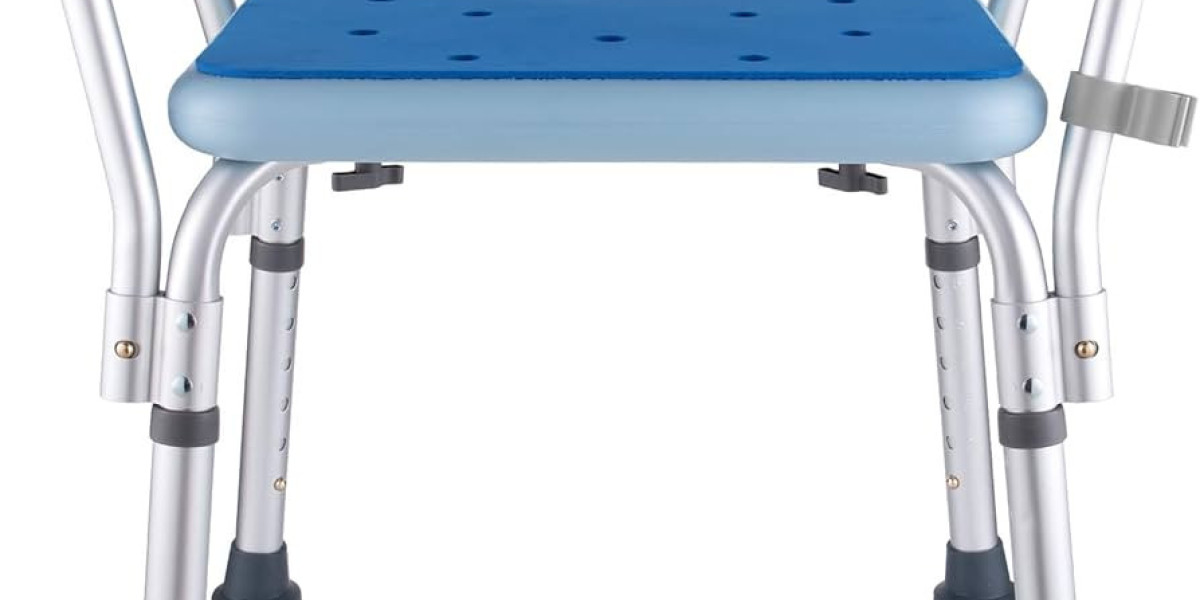Shower stools provide a safe, comfortable, and convenient means of hygiene for elderly and disabled people while minimizing risks encountered by slippery bathroom surfaces. These aids offer stability and support, making them essential for people with mobility issues, hence ensuring safety and independence. Based on such aspects, this article further outlines why shower stool is ideal for the elderly and the disabled.
1. Increase Safety in the Bathroom
Bathrooms are among the most risky places in a house, especially for less mobile people. Water and soap combination on smooth surfaces heighten the risk of slipping and falling.
How Shower Chairs Help:
They provide a non-slip, stable surface to sit on while showering.
This limits standing on wet and slippery surfaces and therefore reduces the fall risks.
Often with rubber-tipped legs or suction cups to enhance stability.
2. Encourage Independence
Most people, whether elderly or disabled, hate the idea of bathing by asking for assistance from their carers. They feel independent by using a shower stool in self-managing hygiene needs.
How Shower Stools Help,
Allow people to bathe independently, saving their privacy as well as dignity.
Provide a safe place to sit, reducing the energy needed to have to stand.
Pedestal is designed with handset showerheads for easy access to water.
3. Comfort In The Bath
Being on their feet for long periods is tiring, especially for patients with chronic pain, fatigue, or weakness. A shower chair is an excellent place to rest your seat, making it easier to bathe in comfort.
How Shower Stool Helps:
Ergonomically designed seats reduce pressure on joints and muscles.
Adjustable-height models allow users to find the most comfortable position.
Padded options add that little bit of comfort for sensitive individuals.
4. Support During Recovery
After surgeries or injuries, mobility may be temporarily restricted, making routine activities, such as bathing, challenging or unsafe. A shower stool ensures support when recovering.
How Shower Stools May Help:
Provide a safe place to sit when recovering from hip replacements, knee surgeries, or fractures.
Help avoid overexertion by reducing the instances when the patient must stand or balance.
Help patients comply with post-operative care orders by avoiding acts that pose a risk.
5. Versatility and Customization
Shower stools offer a wide range of designs, sizes, and materials to suit a variety of users. Their versatility makes them fit different bathroom arrangements and also user preferences.
Features That Make A Difference:
Adjustable Height: It ensures proper fit on different users' heights.
Non-Slip Features: Rubber feet and textured seats ensure stability.
Padded or Contoured Seats: Provide extra comfort for long time use.
Foldable or Portable options: Suitable for traveling or small bathrooms.
6. Psychological Benefits
Safety within the bathroom often creates anxiety, and a person may avoid showering or bathing. Shower stools help eliminate these phobias and create a safer and comfortable environment.
How Shower Stools Assist:
Reduce the fear of falling, thus allowing confidence during showers.
Induce more frequent hygienic activities because bathing is easier and less daunting.
Improve mental well-being through increased independence and control.
Choosing the Right Shower Stool
The stool should be able to accommodate the user's weight in a safe manner.
Adjustable height is essential for ergonomic comfort.
Compact and foldable stools suit smaller bathrooms.
Additional features include armrests, backrests, and padded seats for maximum comfort and usability.
Conclusion
Shower stools are invaluable aids for the elderly and for people with disabilities that blend together safety, comfort, and independence. It reduces the risks of falls, and enforces the position of individuals, and supports physical recovery while bathing. A shower stool is, therefore, a good investment to be sure of quality time, especially as either short-term assistance or for constant use.








